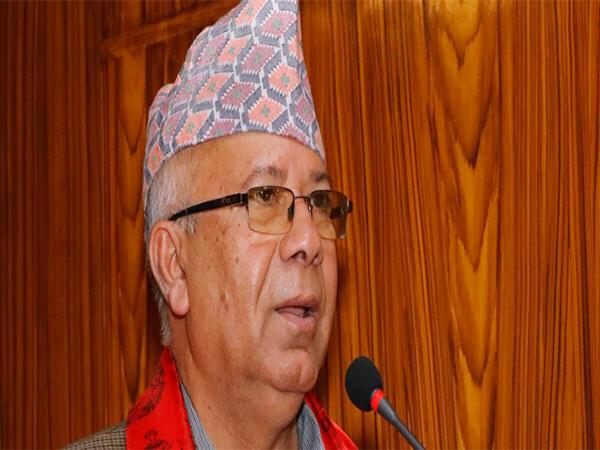Kathmandu [Nepal], June 26 (ANI): A Special Court in Nepal has ordered the release of former Nepali Prime Minister Madhav Kumar Nepal on bail amounting to NRS 3.5 million in the Patanjali land scam case.
It was the first time that a Prime Minister had been booked for corruption in the Himalayan Nation. The bail order was issued on Wednesday following the conclusion of his statement and detention hearing in the corruption case filed by the Nepali Commission for the Investigation of Abuse of Authority (CIAA).
A bench comprising Special Court members Tej Narayan Singh Raya, Ram Bahadur Thapa, and Bidur Koirala issued the order directing his release on bail.
Senior Advocate Sushil Pant, on Wednesday, hired by the CIAA, led the prosecution, which also included government attorneys Mohan Sagar Basyal, Bhagawati Devi Gautam, Umakanta Poudel, and Gyan Prasad Bhusal.
Pant argued that the Cabinet decision enabling the land transaction constituted corruption and should not exempt Nepal from legal accountability.
Pant responded to two key questions posed by the court – whether the CIAA can prosecute a policy-level Cabinet decision and whether Nepal’s role caused harm to government property, as the land in question had not been officially nationalised.
Pant contended that it was not a policy decision and that the land swap effectively caused a loss to the government, as the land beyond the ownership ceiling was meant to be compulsorily nationalised, thereby resulting in a loss. Pant stressed that Nepal should be held in custody during the trial.
The defence, led by Senior Advocate Shambhu Thapa, challenged the CIAA’s legal standing in the case, arguing that independent lawyers cannot represent the prosecution when the charge sheet specifies government attorneys.
Thapa cited precedent from 2003 in which a similar land exemption decision was upheld by the Supreme Court and claimed the charges against the former Nepali PM were politically motivated and legally baseless.
Other defence lawyers, including Khamma Bahadur Khati, Raman Shrestha and Gobinda Bandi, supported the claim that the Cabinet’s decision was policy-driven and beyond the CIAA’s jurisdiction.
Earlier on June 5, the CIAA had booked the former Prime Minister in a corruption case for the first time in the nation’s history.
The case involves alleged misappropriation of land acquired for Patanjali Yogpeeth in Nepal under government exemptions for land ownership ceilings.
As per the charges, the anti-grant agency has demanded NRS 186 million from the former Prime Minister.
Madhav Kumar Nepal, now the chairman of CPN-Unified Socialist (CPN-US), while in power on February 1, 2010, had approved the purchase of 815 ropani (one ropani equals 0.0509 hectares) of land in Banepa, Kavre, under the ceiling exemption for purposes including yoga centres, Ayurvedic institutes, and the herbal industry. The decision was made through a meeting of the council of ministers led by then Prime Minister Madhav Kumar Nepal.
The same cabinet meeting also approved the purchase of land under a ceiling exemption of 75 bighas (one bigha equals 0.677 hectares) in Dang, 300 ropanis in Lamjung, 250 ropanis in Syangja, 15 bighas in Chitwan, 25 bighas in Dhanusha, 150 ropanis in the Kathmandu Valley, and 40 bighas in the Bara-Parsa area within five years.
After receiving Cabinet approval, Patanjali’s Nepal chief, Shaligram Singh, purchased 593 ropanis, 5 annas, and 3 paisas of land in the areas of Nasikasthan, Sanga, Mahendrajyoti, and Chalal Ganeshsthan in Banepa.
The decision-making process to grant approval for purchasing land under the ceiling exemption involved then Prime Minister Madhav Kumar Nepal, then Land Reform Minister Dambar Shrestha, then chief secretary Madhav Ghimire, then secretary Chhabiraj Pant, along with other high-ranking officials and employees.
Within a month of receiving approval to purchase land under the ceiling exemption, on February 19, 2010, Patanjali’s Nepal chief Shaligram, submitted an application to the then Land Reform Minister, Shrestha, seeking permission to sell the land acquired under the exemption.
On March 16 of the same year, citing “as per Prime Minister Nepal’s instruction”, then Minister Shrestha took the proposal to the Cabinet to allow Patanjali to sell the land obtained through the ceiling exemption. Three days later, the Cabinet decided to approve the sale of the exempted land.
However, on March 30, 2010, then-director general of the Land Reform Department Keshar Bahadur Baniya sent a letter to the ministry stating that the Cabinet’s decision was illegal and could not be implemented.
On April 8, 2010, the Cabinet decided to seek clarification from Director General Baniya, accusing him of challenging the approval given for the sale of land exempted from the land ceiling. The next day, to support the planned sale of the exempted land, Baniya was allegedly removed from his position as director general, and Joint Secretary Jit Bahadur Thapa of the ministry was appointed in his place.
On the very same day he assumed the role, Thapa sent a letter to the Kavre Land Revenue Office granting approval for the sale of the land exempted from the land ceiling.
On June 25, 2010, Patanjali sold 353 ropani and 15 aana of land to Kasthamandap Business Homes Pvt Ltd. The investigation has also revealed financial irregularities in land transactions.
When Patanjali sold the land in Banepa, the recorded price was NRS 42.25 million. Government records show that Patanjali later bought 104 ropani, one aana, two paisa, and one dam of land in Dhulikhel for Rs 10.75 million. (ANI)
Disclaimer: This story is auto-generated from a syndicated feed of ANI; only the image & headline may have been reworked by News Services Division of World News Network Inc Ltd and Palghar News and Pune News and World News
HINDI, MARATHI, GUJARATI, TAMIL, TELUGU, BENGALI, KANNADA, ORIYA, PUNJABI, URDU, MALAYALAM
For more details and packages














